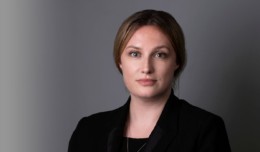General Medical Council v The Queen (on the application of Dr Iheanyi Chidi Nwachuku) [2017] EWHC 2085 (Admin)
The GMC successfully appealed against a tribunal’s finding of no impairment. The case demonstrates the High Court’s robust approach to dishonesty in regulatory cases.
The GMC brought its third successful appeal under s. 40A Medical Act 1983 in General Medical Council v The Queen (on the application of Dr Iheanyi Chidi Nwachuku).
Dr Nwachuku was a full time trainee GP in a surgery. He was additionally undertaking several locum shifts a week. In October 2015 he was scheduled to complete a locum shift at a hospital at 8am and then begin a GP shift at 8.30am. He reconciled this problem by leaving the hospital at around 6am. He faced a number of charges relating to the early abandonment of the hospital shift. Dr Nwachuku largely accepted the facts of this part of the case.
The GMC further alleged dishonesty. Dr Nwachuku pre-signed a timesheet for the locum shift, stating that he had worked until 8.30am. The GMC’s case was that this was dishonest because he in fact left the hospital at 6am and must have known he intended to do so when he completed the timesheet. The Medical Practitioners Tribunal (‘MPT’) found this charge proved.
The MPT found that several charges relating to the early abandonment of the shift and the dishonest completion of the timesheet amounted to misconduct. The tribunal considered Mr Nwachuku’s mitigation, including his acceptance of dishonesty following the factual determination, and assurances the behaviour would not be repeated. It found that his fitness to practise was not impaired and he was issued with a warning.
In considering whether the decision was “wrong”, the court recognised the now familiar need for caution before interfering with the MPT’s conclusions on fact, especially where dependent on the credibility of witnesses. However at paragraph 44(iv) the court noted:
“when the question is what inferences are to be drawn from specific facts, an appellate court is under less of a disadvantage. The court may draw any inferences of fact which it considers are justified on the evidence.”
In reviewing the case law regarding impairment following a finding of dishonesty (paragraphs 45 -50), the court noted that impairment does not necessarily follow dishonesty, but that it will be likely to follow because dishonesty is at the most serious end of gravity of misconduct. It will only be in unusual cases where dishonesty does not lead to a finding of impairment.
O’Farrell J found that Dr Nwachuku’s dishonesty was serious and the MPT was wrong to find his fitness to practise was not impaired for the following reasons:
- He dishonestly filled out the timesheet for personal gain;
- He did not correct the timesheet despite promising to do so;
- His admissions in the course of the hearing amounted to an acceptance of negligence, not dishonesty. His continued denial of dishonesty was an aggravating factor;
- The MPT placed too much weight on his reflective piece to determine that his conduct was remediable and it paid insufficient attention to the fact that he continued to undertake locum work and had taken no steps to prevent repetition;
- His testimonials were of little assistance in deciding upon impairment because they did not address dishonesty.
The court ultimately found the dishonesty and other serious misconduct warranted a finding of impairment to protect the public and the reputation of and confidence in the profession. The case was referred back to the MPT to reconsider sanction.
This case underlines the seriousness with which the courts approach dishonesty in regulatory proceedings. It reinforces too the difficulties for doctors in demonstrating insight where they have disputed dishonesty charges and these have been found proved.
Of note, although the court appears on one hand to have recognised that the Tribunal should be shown deference on matters of fact and credibility, it nonetheless felt able to overrule the Tribunal’s findings about the doctor’s level of acceptance and insight.
Laura Stephenson
Categories: Newsletters


